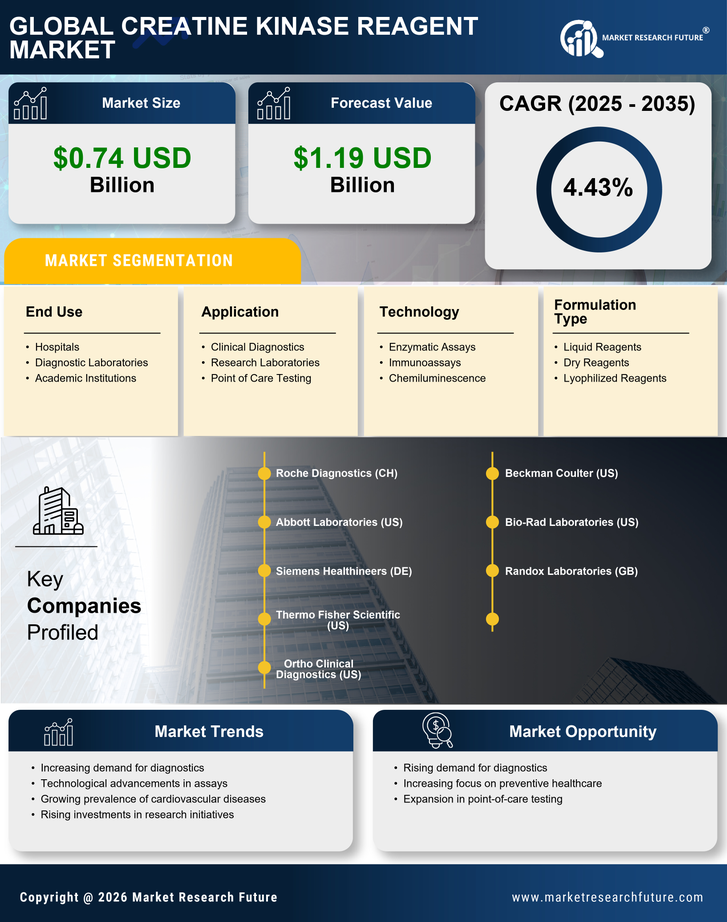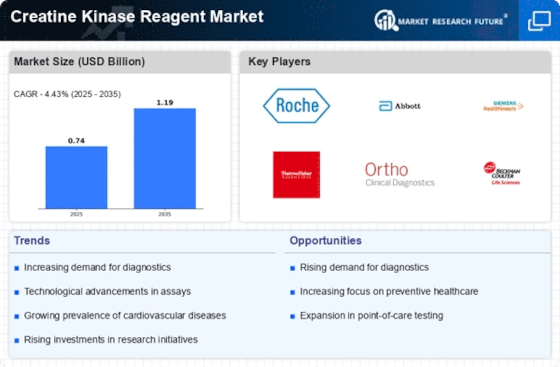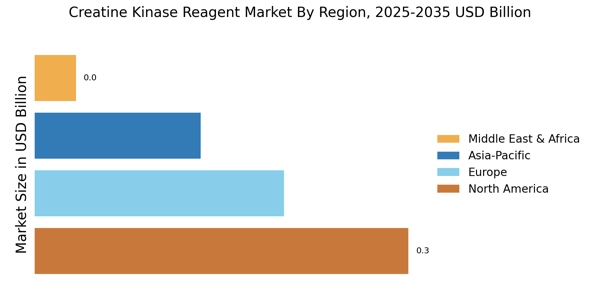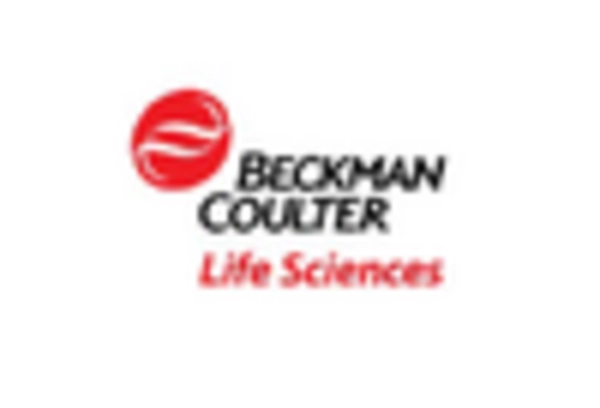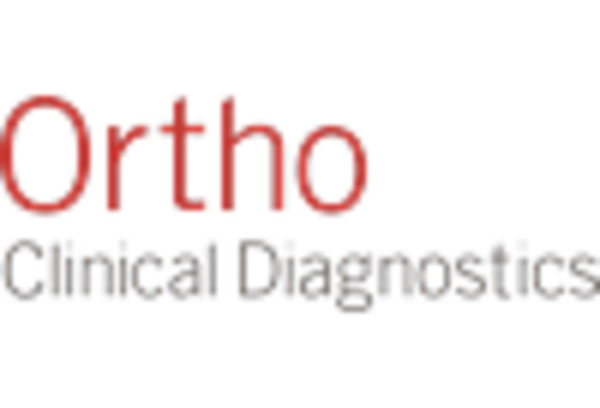Expansion of Clinical Applications
The expansion of clinical applications for creatine kinase testing is a notable driver for the Creatine Kinase Reagent Market. Beyond traditional uses in cardiology, creatine kinase assays are now being explored in various fields, including sports medicine, neurology, and critical care. For instance, elevated creatine kinase levels can indicate muscle damage, making these tests valuable in assessing athletes' health and recovery. Additionally, advancements in understanding the role of creatine kinase in neurological disorders are opening new avenues for research and application. This diversification of applications is likely to enhance the market's growth, as healthcare providers seek versatile reagents for a broader range of diagnostic purposes.
Growing Focus on Preventive Healthcare
The shift towards preventive healthcare is influencing the Creatine Kinase Reagent Market significantly. As healthcare systems worldwide emphasize early detection and prevention of diseases, the role of biomarkers like creatine kinase becomes increasingly vital. Preventive measures often involve regular monitoring of key health indicators, including enzyme levels, to identify potential health risks before they escalate. This trend is supported by initiatives aimed at promoting health awareness and encouraging routine health check-ups among populations. As a result, the demand for creatine kinase reagents is expected to grow, as they play a crucial role in preventive diagnostics and health management.
Technological Advancements in Diagnostic Tools
The Creatine Kinase Reagent Market is experiencing a notable transformation due to rapid technological advancements in diagnostic tools. Innovations such as automated analyzers and high-throughput screening systems are enhancing the efficiency and accuracy of creatine kinase testing. These advancements not only streamline laboratory workflows but also reduce the time required for obtaining results, which is crucial in clinical settings. Furthermore, the integration of artificial intelligence and machine learning in diagnostic processes is expected to improve the interpretation of creatine kinase levels, leading to better patient outcomes. As healthcare providers increasingly adopt these advanced technologies, the demand for high-quality creatine kinase reagents is likely to rise, thereby propelling the market forward.
Increasing Prevalence of Cardiovascular Diseases
The rising incidence of cardiovascular diseases is a significant driver for the Creatine Kinase Reagent Market. Creatine kinase levels are often utilized as biomarkers for myocardial infarction and other cardiac conditions. As the global population ages and lifestyle-related health issues become more prevalent, the need for effective diagnostic tools to monitor heart health is intensifying. According to recent health statistics, cardiovascular diseases account for a substantial percentage of global mortality, underscoring the importance of timely and accurate diagnosis. Consequently, healthcare facilities are increasingly investing in creatine kinase testing, which is anticipated to boost the demand for reagents in this market.
Rising Demand for Quality Control in Laboratories
The increasing emphasis on quality control in laboratories is driving the Creatine Kinase Reagent Market. Regulatory bodies and accreditation organizations are mandating stringent quality assurance protocols to ensure the reliability of diagnostic tests. As a result, laboratories are investing in high-quality reagents that meet these regulatory standards. The demand for creatine kinase reagents that offer consistent performance and accuracy is likely to rise, as laboratories strive to maintain compliance and enhance their testing capabilities. This focus on quality not only supports patient safety but also fosters trust in laboratory results, further propelling the market for creatine kinase reagents.
